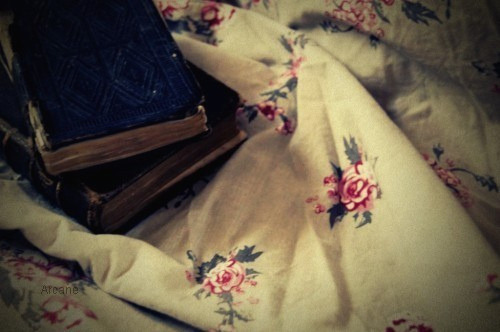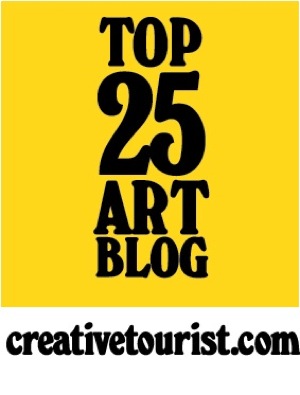
I'm spending a lot of time in libraries recently: from the amazing British Library where I'm spending most of my weekends, working on The Dreaded Dissertation, to the wonderful Barbican library, which keeps me in books to while away my daily commute.
Browsing the library shelves recently, I came upon an old favourite - an essay by the theorist Walter Benjamin entitled "Unpacking My Library". This essay is Benjamin’s hymn to his book collection, which for him becomes a “dwelling… with books as the building stones”: a home within a home into which he can disappear.
I too am a book collector. I haven't got many books here in London, but it's nice to know that back in Lancaster, they are all there waiting for me: my foundation stones, the books that built me up brick by brick. There are the vintage hardbacks with their faded paper jackets, their nostalgic endpapers, the titles arching across their spines in romantically twirled letters – Dimsie Moves Up, Dancer's Luck, Cherry Tree Perch – or dashing capitals – Underwater Adventure, Smuggler’s Cove, The Secret of Grey Walls. There are the 1970s library cast-offs with their laminated pastel covers, still shedding loose pages, tattooed with the marks of someone else’s felt-tip pen. There is that familiar rainbow of well-worn Armada paperbacks, unravelling my own past along their ragged spines: dog-eared Famous Fives and Chalet Schools interleaved with Nancy Drew adventures, priced in shillings and pence. A whole flock of Puffins: Ransome’s Swallows and Amazons jostling alongside Nesbit’s Treasure Seekers; Anne of Green Gables beside Stig of The Dump. They have a musty, archaic smell that for me will always evoke a long-lost world of bicycles and picnics and seaside adventures and plucky heroes and heroines, into which I too can disappear.
Assembled they are a cheerful, dog-eared muddle far removed from the elegant, clean-lined Parisian edifice I somehow associate with Benjamin’s book collection. This construction is infinitely more chaotic: a tiny crooked Nara-esque wendy house built out of disintegrating paperbacks, jumbled with childhood souvenirs, glinting with tarnished treasures that I can only peep at through miniature postage-stamp windows, stooping to catch distant, mysterious underwater sounds. This is my dwelling: a little house (with or without prairie), a secret garden, an enchanted wood.
Perhaps all this sounds a little too nostalgic, excessively dewy-eyed. Some years ago, I remember reading something Julie Burchill wrote in her column for The Guardian, where she derided people like me, the people who grew up secretly aspiring to “a childhood spent talking to the animals on Sunnybrook Farm perhaps, before going to board (sharing a room with Pollyanna) at Mallory Towers and then leaving with straight As to work in Narnia as Aslan’s personal assistant.” The piece was not in fact about children’s books at all, but something else entirely, yet this sentence stood out to me as if it had been highlighted, underlined in bright red pen. Burchill was doing her utmost to make the people she was describing sound ridiculous, but the more I thought about it, the more I realised this didn’t sound ridiculous at all to me. I couldn’t imagine joining Burchill in co-conspiratorial scorn at these deluded dreamers: in fact, if anything, I couldn’t help wondering how any self-respecting child raised on a diet of Blyton and C.S. Lewis could be reasonably expected to hope for anything else?
Today, “escapism” is so often dismissed with derision by writers and cultural critics: the recent tentative suggestion of children’s book author Anne Fine that maybe books don’t always need to be about realism, but instead could be the preserve of hope resulted in a barrage of criticism and condemnation. Yet from the vantage point of my paperback house, it seems to clear to me that sometimes we need to creep under the ivy, through a secret door in a garden wall, or embark on a riverside picnic with Ratty and Mole. We need to retain these happy endings, the loyal dogs and picnic baskets, the mysterious land at the back of the wardrobe. In a world where, as Thomas Wolfe once put it, “you can’t go home again,” maybe we all need a place to escape to, a “dwelling… with books as the building stones” into which we can retreat.
As for me, like Benjamin himself, I’m happiest “among… piles of volumes.” Right now, I have to admit that I really don't mind spending my Saturday morning in the British Library. In fact, I'm happy to be there, because wherever I go, I know that between bookshelves I’ll always find a home from home.














7 comments:
I think you'll enjoy one of my pieces in Flax, as it talks about my personal book history! Its something more than escapism, isn't it?, rather the desire for a life that has something magical in it.
lovely.
Thanks Emily!
And very much looking forward to seeing the Flax piece.
This (elegant) piece really struck a chord: I just moved house, and finally bought a lot of bookcases, thinking that a whole flat to myself would mean that all my books could be cared for, ordered ('mild boredom' notwithstanding) and displayed as if my soul were on public view.
It hasn't quite worked out like that. I wanted only poetry in the bedroom (that is not a cheesy innuendo, by the way), but four bookcases are there, full of critical theory and the like, and several hundred books are annoying my colleagues at work. Every time I pass a shelf, I'm caught by an author's work out of sequence, or a memory of where and when I first read a particular text, such as the Delillo I read by the banks of the Rhine days after my most serious relationship ended.
Some books are indicators solely of my financial health: secondhand, paperback or hardback. Others indicate my changing personalities: all the Tolkien books have lain virtually untouched since I was 14, but I never dispose of books, and keep hoping that when the Alzheimer's finally strikes, I'll enjoy them again. Meanwhile, I just can't face the Manichaean plotting and terrible dialogue ('what fresh devilry is this?' etc.)
Children's literature is a large section (or would be if I separated it), but it falls into two categories - those which I read as a child, and those I'd recommend. Perhaps the presence of so many childrens' books is subconscious nesting - how sad. The former are often nostalgic, limited, comforting, sometimes reactionary (Blyton especially), whereas those I've read, re-read or bought as an adult are amongst the best works of any kind: Alan Garner, Pullman, Dickinson, Reeve, Lively, Hearn. We really are living in a golden age for children's literature, perhaps because our best writers have confronted or encouraged a revisioning of what childhood means, for the first time since the Victorians.
I'm with you on Ransome - wholesome yet still anarchic in the best sense. I also read all 8 volumes of the Anne of Green Gables series recently: they tail off, and they're fascinatingly open in their reactionary politics later - not an exercise in bucolic nostalgia at all. I'd definitely hand them over to a boy or girl of any generation.
Does the stateliness or not of your collection bother you? I like the battered, drawn-on, garishness of some of my books, whereas other cases (my Welsh collection, the critical theory) look like a university library corner, which also gives me a tiny sense of achievement and belonging. I thought about taking all these books to work, but decided against it: what I do is so much a part of me (and yet a vulnerable part) that I want it at home as a form of reassurance.
You're right about the need for escapism. I read The Wind in the Willows every year, and never find it insubstantial - the same goes for The Hitchhiker's Guide to the Galaxy and The Owl Service.
What's your thesis about?
Hello Vole, thanks for your comment.
One of the things I like best about my book collection is the contrasts. I tend to resist keeping things in any particular order, and positively relish the opportunity to put a serious literary novel next to 'Five Go Down to the Sea' or some weighty tome of cultural theory alongside a very battered copy of 'Little Women'. And I like the juxtaposition of glossy new books next to the friendly, shabby old paperbacks, many of which have been mended several times over, and some of which have a tendency to weep pages when you open them (not great for reading in the bath!)
I'd be interested to hear more about what you made of the Anne of Green Gables books - and have you read L.M. Montgomery's Emily trilogy? Really quite odd.
My dissertation is (very broadly) about the relationship between literature and the visual arts, with a specific focus on the poetry concurrent with the New York Dada movement. I'm looking particularly at the early, Dada-influenced poems of William Carlos Williams, as well as the work of a rather interesting lady called the Baroness Elsa von Freytag-Loringhoven. It's all pleasingly bonkers.
Juxtaposition = serendipity. Your thesis sounds fascinating - look forward to inter-library loaning it!
Haven't read the Emily books yet, though Montgomery fans rave about them. I'll get round to it. I'm toying with writing a paper on Anne for a conference of constructions of Canadian identity soon… as part of my campaign to land a job at Prince Edward Island university.
See you in Manchester!
I love this post and feel exactly the same way. My book collection has followed me from home, to university (when it was just one bookcase) and from house to house. It's now 6 bookcases and bursting at the seams. What better illustrates your tastes, your travels, who you were and who you are now.
Must dash - have a boat to catch to Kirrin Island.
Post a Comment